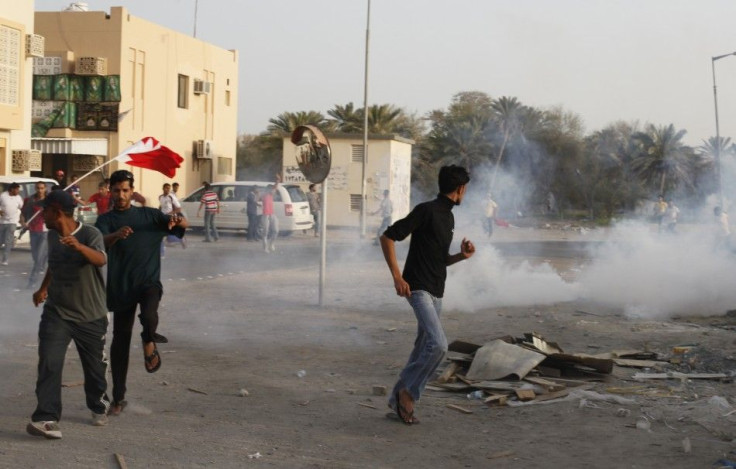Bahrain Strips Activists Of Citizenship

Bahrain has revoked the citizenship of 31 activists, intensifying its crackdown on anti-government protests.
The Bahraini government justified the action, claiming the dissidents had ties to Iran and were undermining state security by inciting social unrest.
"They are all members of banned parties which work to topple the regime,” Bahraini Information Minister Samira Ibrahim bin Rajab told the BBC. “They are members of the so-called Islamic Front for the Liberation of Bahrain, which was established in Iran. They have connections with the Iranian Embassy and some work inside there."
The monarchy has often accused Iran -- designated a state sponsor of terrorism by Bahrain’s ally the U.S. -- of supporting the political opposition and stoking unrest, though it has yet to provide any supporting evidence.
Rights groups have condemned the stripping of the activists’ nationality as politically motivated and without any evidence to support a threat to state security.
“It is apparent that the action taken by the Bahraini authorities to revoke the citizenships of 31 individuals is intended to punish them for expressing peaceful dissent and thereby intimidate others from exercising their right to freedom of expression," read a statement from the Bahrain Youth Society for Human Rights and the Bahrain Centre for Human Rights, the BBC reported.
Some of the activists are based abroad and will be barred from returning to Bahrain, while it is not yet clear whether the government intends to expel those activists in the country.
The Bahraini government has announced that an appeals process will be granted to the activists, though the judiciary is controlled by the regime.
Last week, the government banned all public protests, a move which drew criticism from the U.N.
“The secretary-general believes these restrictions could aggravate the situation in the country and urges the government of Bahrain to lift them without delay,” read a statement from UN Secretary-General Ban Ki-moon.
There have been mass protests in Bahrain since February 2011, part of the wave of popular uprisings in North Africa and the Middle East known as the Arab Spring that began in Tunisia near the end of 2010.
Despite the many documented abuses of human rights by the Bahraini government in its suppression of political dissent, the U.S. remains supportive of the regime, which allows the U.S. to maintain a Navy base in the capital Manama, strategically located on the Persian Gulf.
© Copyright IBTimes 2024. All rights reserved.











